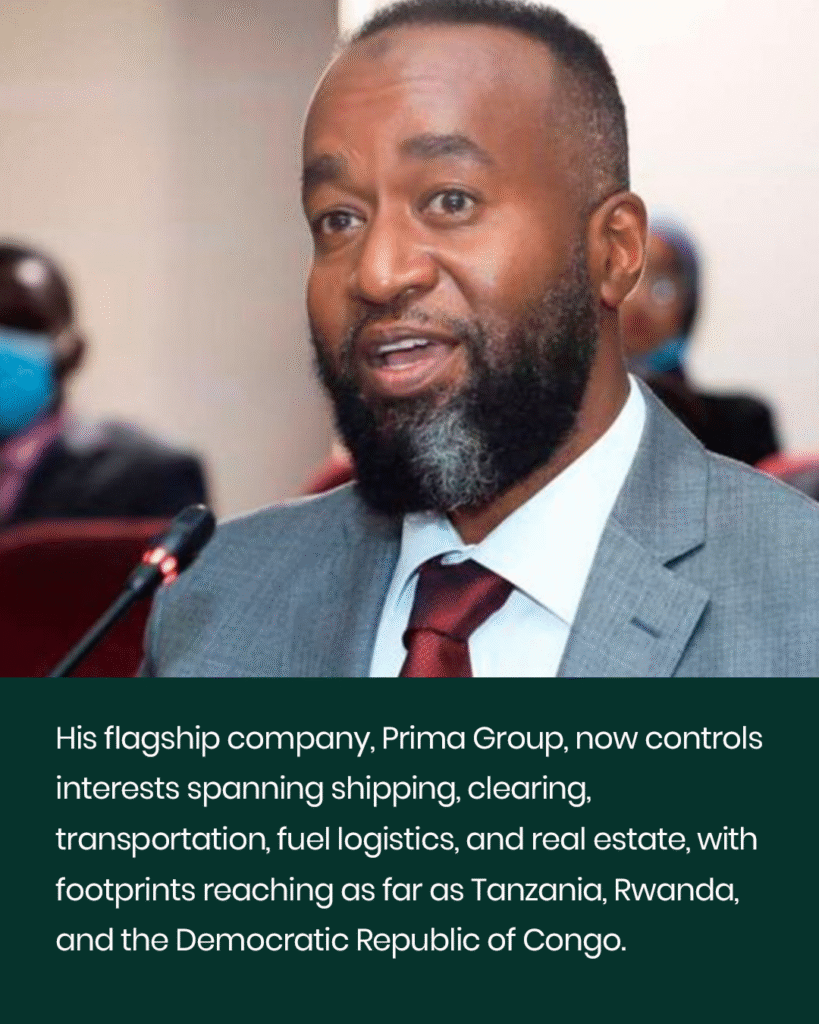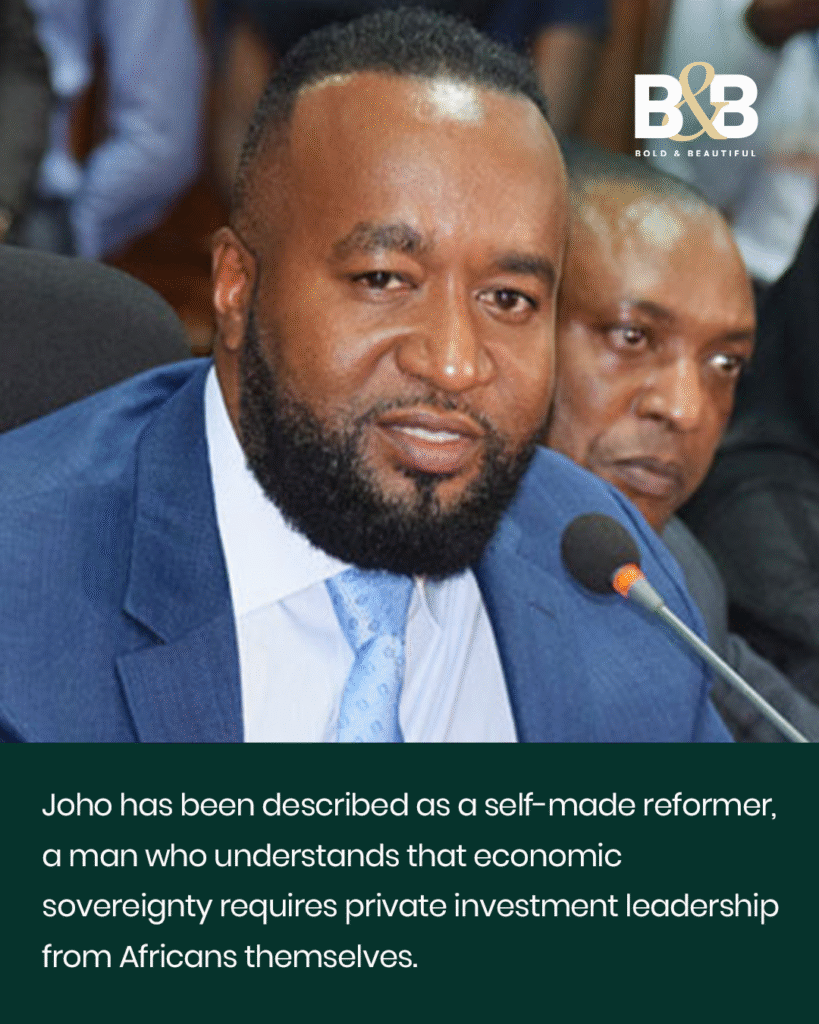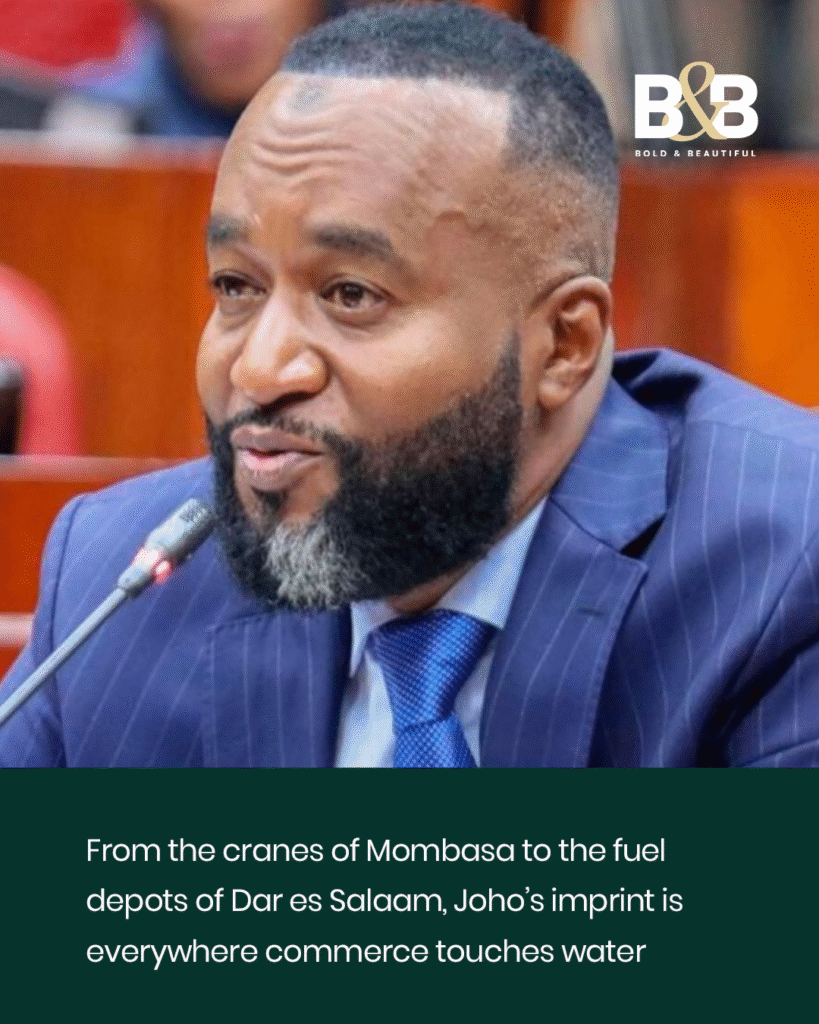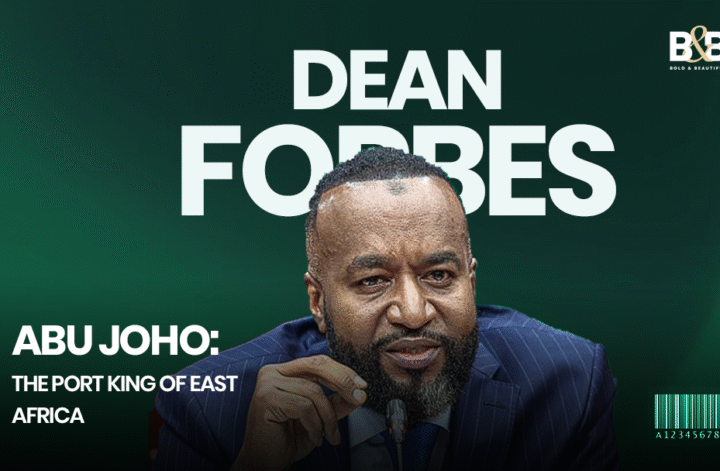In the story of modern Kenya, few figures embody the merger of political intuition and entrepreneurial audacity quite like Hassan Ali Joho, the billionaire businessman and former governor of Mombasa. Behind his public image as a flamboyant political heavyweight lies one of East Africa’s most quietly transformative business portfolios, a logistics and port empire that has reshaped regional trade routes and positioned Joho as a central player in Africa’s maritime economy.

Joho’s rise did not begin with inherited wealth or foreign backing. It began in the restless hum of Mombasa’s docks, where he once managed modest freight operations that would eventually evolve into one of Kenya’s most strategically integrated logistics networks. His flagship company, Prima Group, now controls interests spanning shipping, clearing, transportation, fuel logistics, and real estate, with footprints reaching as far as Tanzania, Rwanda, and the Democratic Republic of Congo.
At the heart of Joho’s business philosophy lies an insistence on control of infrastructure. His investments have followed the arteries of trade, aligning with the growth of the Mombasa Port, a facility that handles nearly 90 percent of Kenya’s imports and serves several landlocked economies in East and Central Africa. By securing critical links in warehousing, trucking, and port support services, Joho has ensured that his companies remain indispensable to regional commerce.

Industry analysts often point to his strategic timing. As Kenya moved to modernise its port systems and streamline customs procedures, Joho’s firms positioned themselves early to capture the benefits of automation, private participation, and regional logistics harmonisation. His decision to expand into marine fuel supply and port technology proved prescient, aligning with the African Continental Free Trade Area’s (AfCFTA) emphasis on intra-African trade and logistics efficiency.
Joho’s ventures have not existed without scrutiny. His wealth and proximity to political power have drawn scepticism, particularly from opponents who view his dominance as too entrenched within Kenya’s political-commercial nexus. Yet his defenders describe him as a self-made reformer, a man who understands that economic sovereignty requires private investment leadership from Africans themselves.
His business story is as much about vision as it is about timing. As Africa’s coastal economies race to attract foreign port operators, Joho has championed African ownership in key logistics chains. His influence extends beyond Mombasa. He has been instrumental in promoting trade cooperation between East African ports, advocating for infrastructure linkages that connect Kenya’s port system with inland cities and neighbouring economies.
Now in his fifties, Joho operates with the calm confidence of someone who has seen markets rise and collapse, yet understands that resilience, not rhetoric, builds legacies. In interviews, he often speaks of Africa’s need to own its gateways, the ports, the data systems, and the transport corridors that define trade sovereignty. It is an argument that resonates across the continent’s business elite, especially in an era when logistics is the new oil.

Joho’s empire today represents a blend of entrepreneurship, diplomacy, and infrastructure mastery. What began as a small freight company has evolved into a continental platform connecting businesses, governments, and consumers. From the cranes of Mombasa to the fuel depots of Dar es Salaam, his imprint is everywhere commerce touches water.
Whether seen as a shrewd businessman or a politically attuned industrialist, Abu Joho’s port empire tells a story larger than personal success. It reflects Africa’s gradual reclamation of control over its trade architecture, a shift from dependency to design. In that sense, Joho’s legacy is already docked in history.





